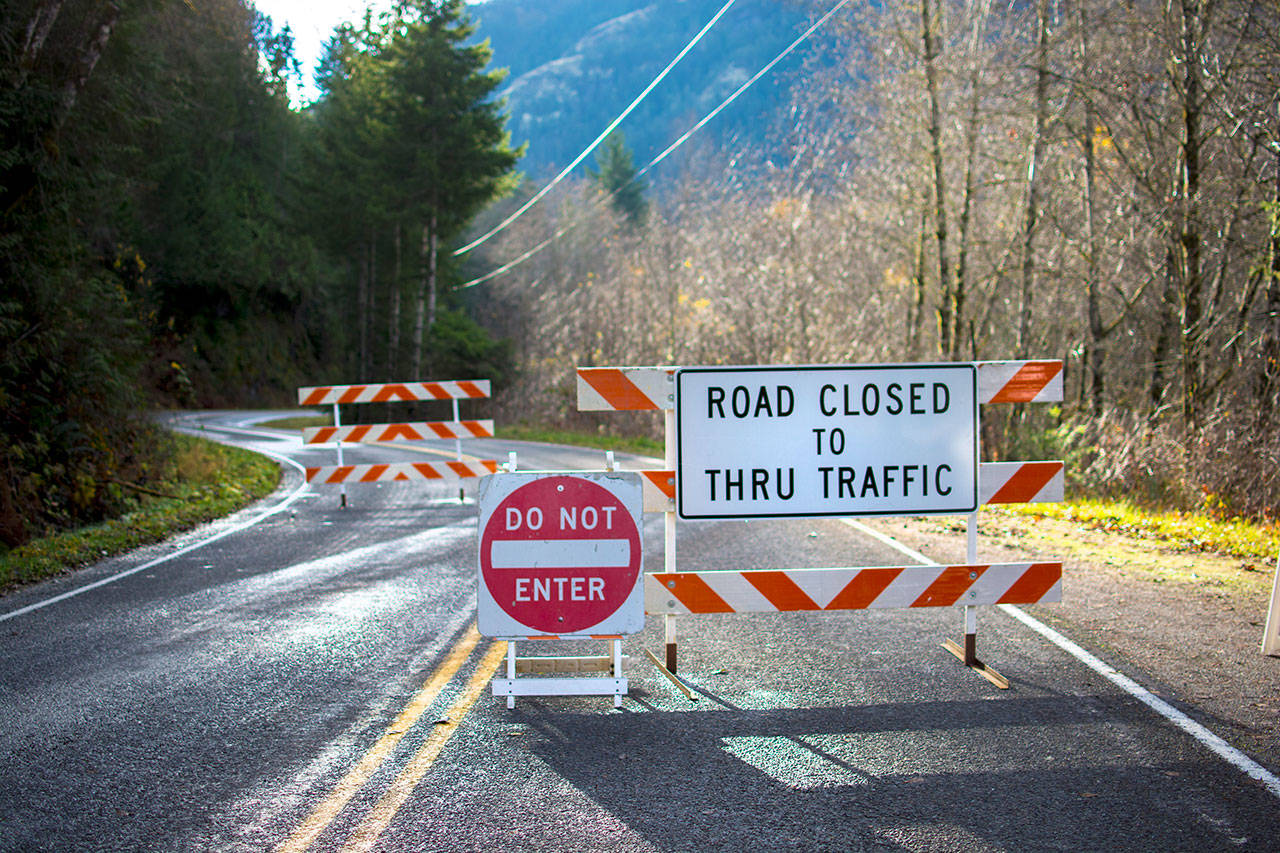Olympic National Park is asking the public to comment on how the park should restore vehicle access to the Elwha Valley in 2021.
About 1 mile of Olympic Hot Springs Road within the Elwha River’s floodplain has repeatedly been impacted by flood waters since the historic removal of the two Elwha River dams was completed in 2014.
The park is looking at whether it should relocate the road outside of the floodplain, modify the current road or do nothing.
The park will accept comments on the alternatives for the Olympic Hot Springs Road Long-Term Access Environmental Assessment through Jan. 6. One of the alternatives will be implemented in 2021.
Public access
“Long term, sustainable public access in the Elwha Valley is our goal,” acting park Superintendent Lee Taylor said. “We appreciate the public’s participation in the planning process.”
Sarah Creachbaum, the park’s superintendent, is temporarily serving as a deputy regional director for the National Park Service in San Francisco and is expected to return to her post in Olympic National Park in January.
The current timeline calls for the public review of the preliminary alternatives this month, a public review of the draft environmental assessment in May and June and a final decision in July or August.
During the public comment period, the National Park Service will host an in-person public meeting. At the meeting, Olympic National Park and Federal Highway Administration staff will be available to discuss the outcomes to date from the recent geotechnical investigation, the purpose and need for the long-term access environmental assessment, and present the three preliminary alternatives.
The meeting will be held from 5:30-6:30 p.m. Thursday, Dec. 13, at the Elwha Klallam Heritage Center, 401 E. First St., Port Angeles; following the presentation is an open house.
The alternatives
Alternative 2 is the option that would relocate Olympic Hot Springs Road to higher ground.
The road would be realigned upslope from the Sanders Creek crossing on the north end to near the Elwha Ranger Station on the south end.
Following construction, the existing roadway would be removed and the floodplain restored.
This option would have fewer wetland and floodplain impacts than the other alternatives and the proposed location would have better foundation soils for embankment and sub grade support, according to the park.
Relocating the road would mean less road maintenance in the future, but also calls for extensive cuts and fills and has the potential for increased rock and tree fall risk from the slopes.
Alternative 3 calls for raising 1 mile of the road that is in the floodplain by about 10 feet.
This option would keep the road on its current alignment, but trees and other vegetation on the road would need to be removed to allow for a steeper roadside embankment.
Sections of the road most susceptible to repeated flooding would be reinforced.
Similar to Alternative 2, Alternative 3 would require the park to build a bridge over the Elwha River to cross near Sanders Creak.
Olympic National Park is conducting a geotechnical investigation to determine the feasibility of the reroute. Monitoring instruments have been installed for a planned year of monitoring and will be used to identify whether there is slide activity.
There is also a no-action alternative in which Olympic National Park would maintain foot and bicycle traffic to the extent that is feasible.
Under this alternative increased severity and frequency of flooding would likely continue. Areas of road settlement and shoulder failures along the upper road would not be repaired.
For more information or to comment online, visit park planning.nps.gov/OHSREA.
Comments on the preliminary alternatives can also be mailed or hand-delivered to: Olympic National Park, Attn: Acting Superintendent Lee Taylor, Olympic Hot Springs Road Long-Term Access EA, 600 E. Park Ave., Port Angeles, WA 98362.



